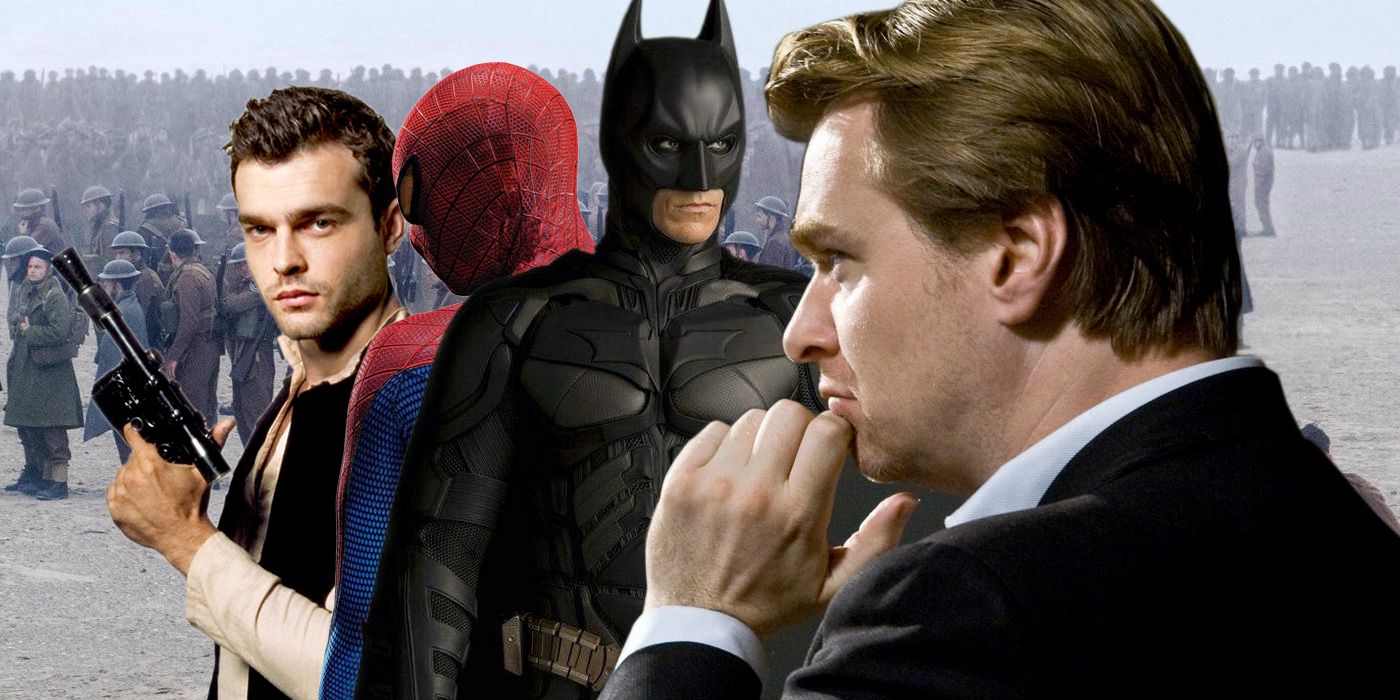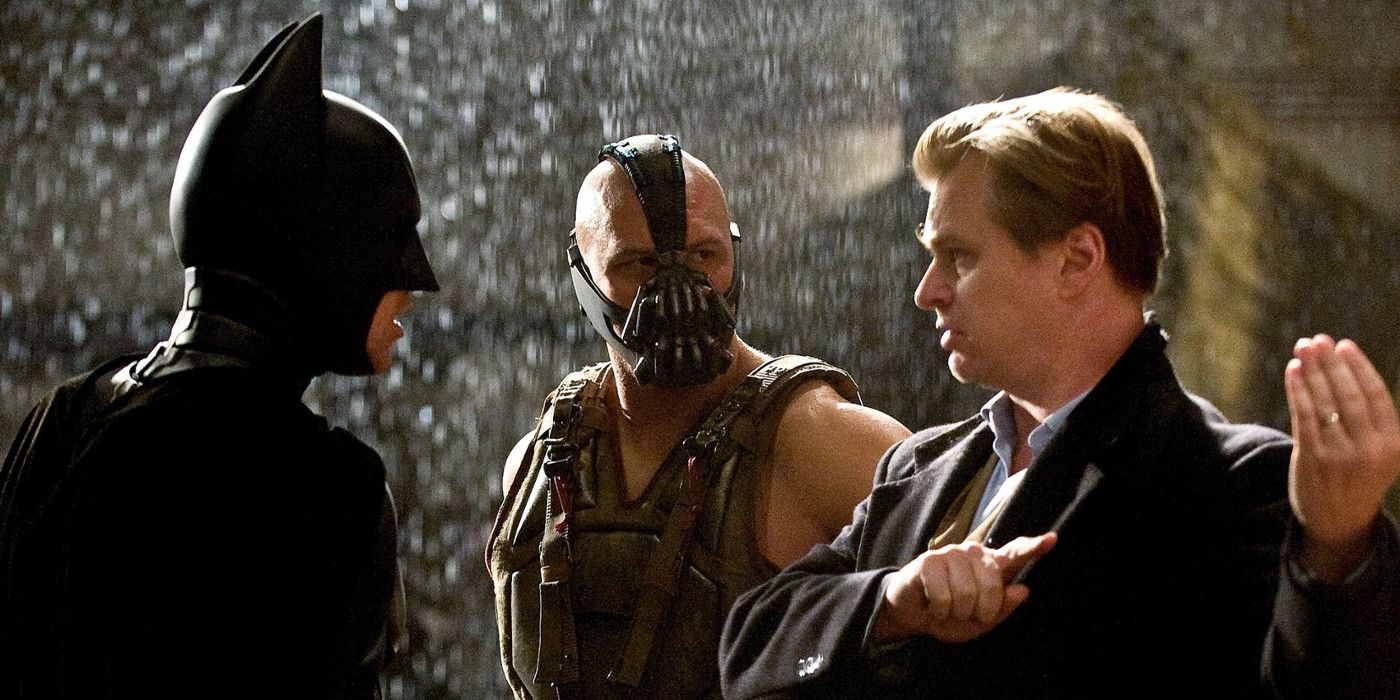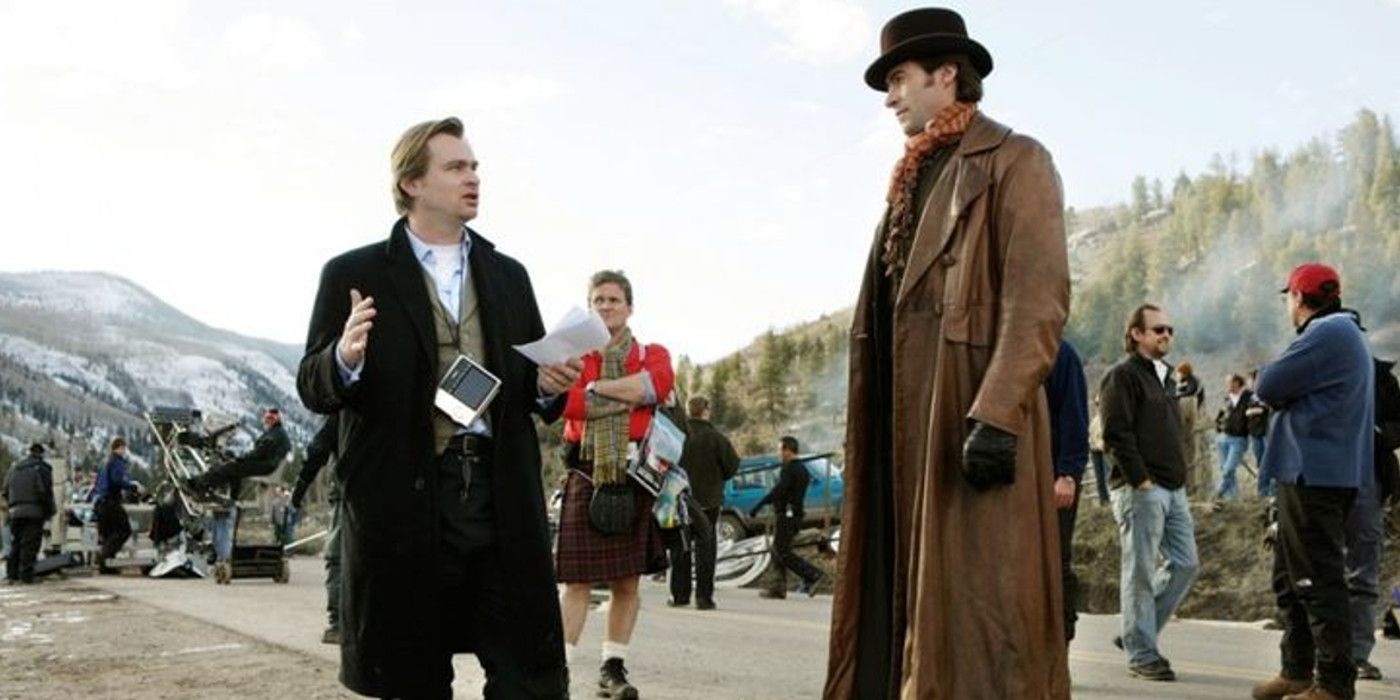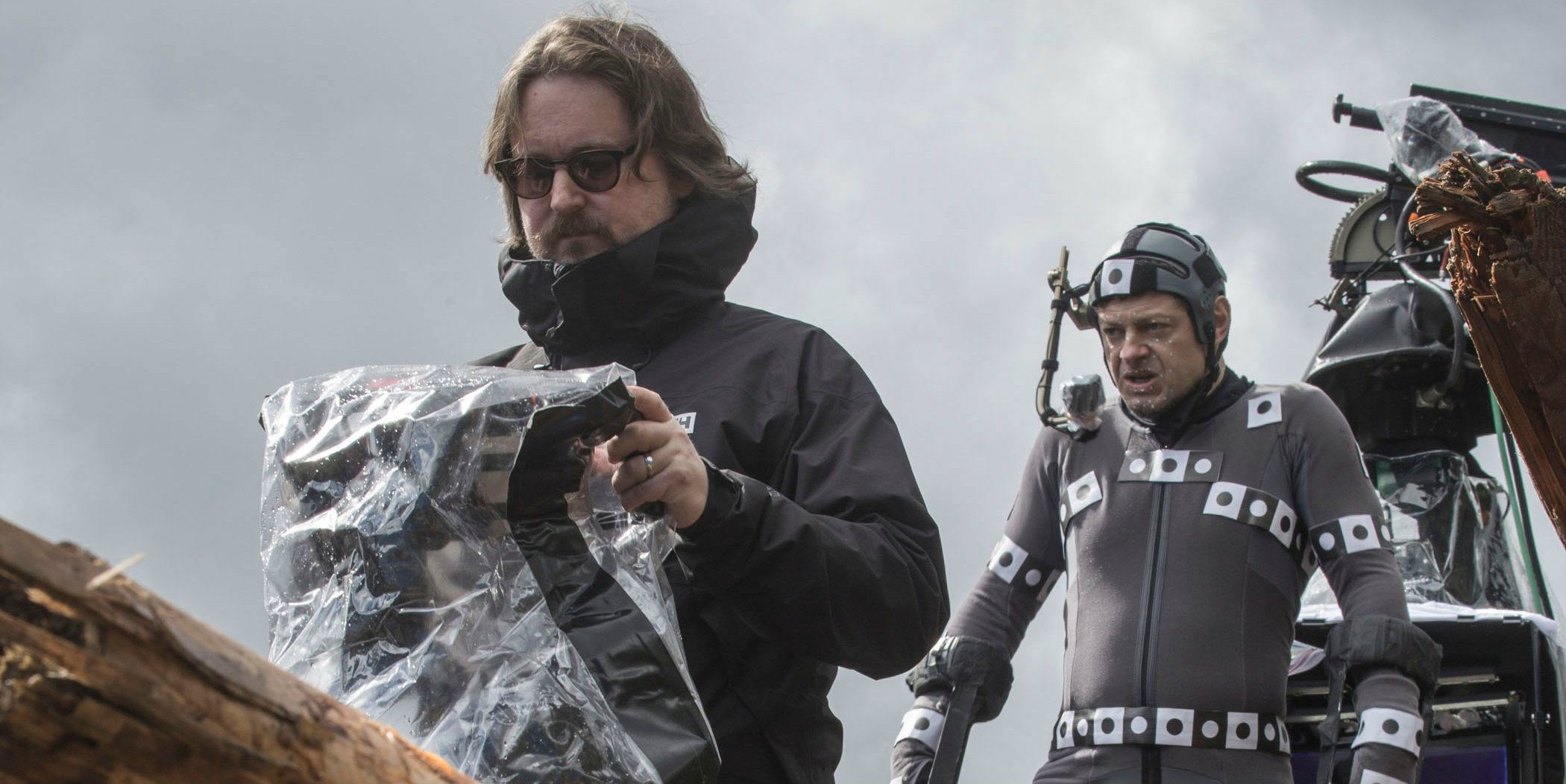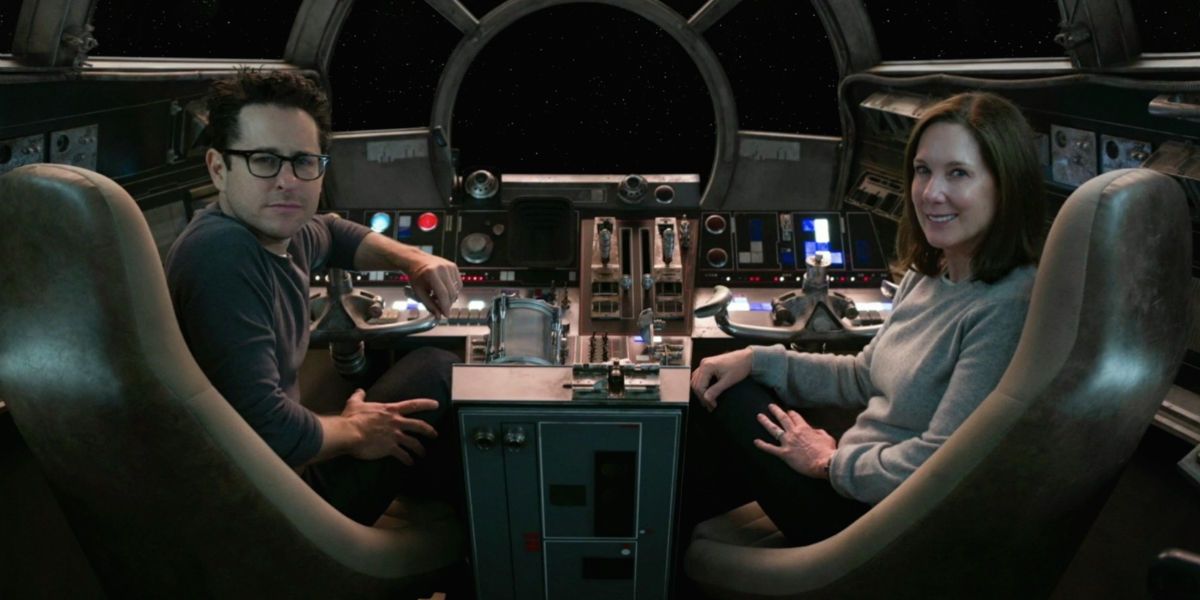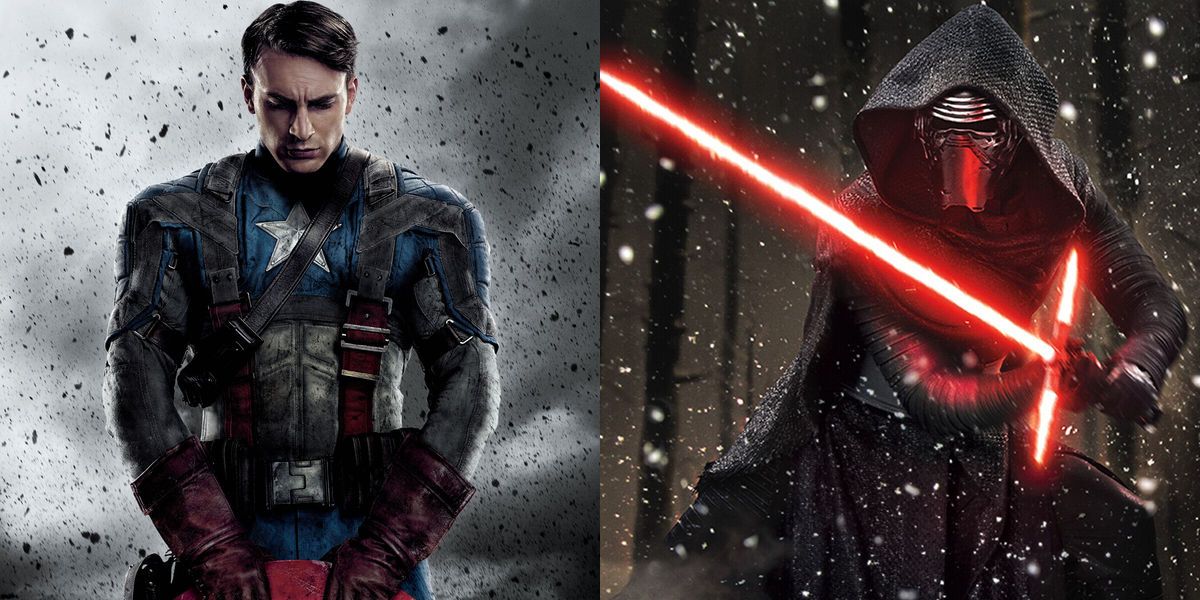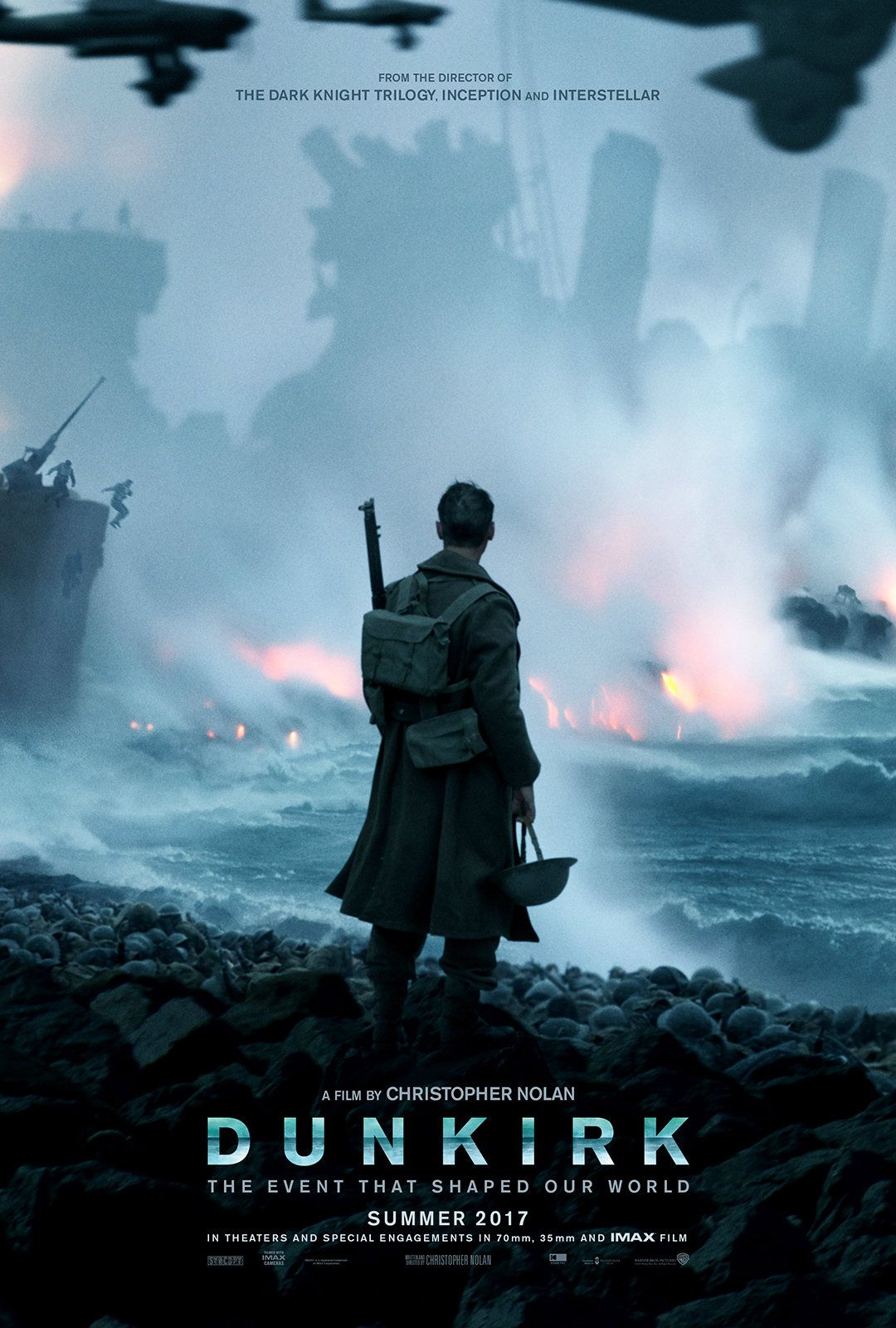Christopher Nolan is one of the most influential, revered and successful directors of his time, creating a seemingly endless run of expectation-defying movies - but his rise is also the reason behind some of the key problems in modern Hollywood. When we talk about Nolan's influence, it tends to center on two key things: the brooding darkness and PG-13-pushing of The Dark Knight Trilogy, and the high concept storytelling of his original projects from Memento to Interstellar. These have certainly had a major impact on blockbuster cinema, although to take in the scope what he's truly done, we need to step outside of the movies' actual content and look at how he's altered the studio approach.
Nolan is from the generation of Star Wars-inspired directors; he was drawn to filmmaking by George Lucas' space fantasy and after making Super 8 films as a teenager transferred that into a formalized education, studying film at UCL and making typically experimental shorts. While his feature debut is the lesser-seen Following (a student film in all practicalities, although not one without hints at future greatness), the big step was Memento; his revenge drama in reverse got massive attention and marked him out as one to watch. Next up was remake Insomnia, but then - after just three films, two of which were moderate successes - he was handed the keys to the castle. Warner Bros. wanted to save Batman from the Schumacher era and so they got Nolan to craft a top-down new take on the Caped Crusader, and both the character and his career just went from strength to strength.
While the rise to Batman Begins is certainly swift and impressive, what Nolan's done since is perhaps even more remarkable. He took Batman to heights hitherto only reached by Titanic and The Lord of the Rings, seeing The Dark Knight to a billion dollar haul, and then when gifted a blank cheque to make his long-gestating passion project Inception didn't miss a step, turning in an emotional, high-minded blockbuster that made $825 million (only a fraction less than the Batman flick). And while more recent fare The Dark Knight Rises and Interstellar have been more experimental and thus divisive (mainly due to vastly increased ambition), he's continued to only more success.
No matter how you measure it - reviews, audience assessment, box office, lasting legacy - Christopher Nolan is the ideal blockbuster filmmaker. So it's little wonder studios have tried to find another.
The Real Nolan Influence
That first step in Nolan's journey - the jump from small movies to a massive studio tentpole - is hardly groundbreaking by today's standards. In the just the past few months we've had Dean Israelite on Power Rangers, Patty Jenkins on Wonder Woman and Jon Watts on Spider-Man: Homecoming making similar steps. You could also throw Rian Johnson on Star Wars: The Last Jedi and Taika Waitti on Thor: Ragnarok in there; they're more established in the industry but their new films are still a massive increase in scale. This isn't just one way to do things either: it's the way. Gareth Edwards on Godzilla, Colin Trevorrow on Jurassic World, Marc Webb on The Amazing Spider-Man, most of Marvel's recent hires; plucking an indie star out of immense but lesser-seen success is the way you make a blockbuster in the 2010s.
But back in 2005, it was a pretty unprecedented move. You had director wunderkinds, sure, but they grew off their previous successes, not promise of potential. Going back a couple of decades, while George Lucas and Steven Spielberg both rose to hitherto unbelievable heights, they did that by first making low-budget films mid-range successes and then the mid-budget projects they received off the back of that into all-timers (Star Wars cost $11 million, a mere $44 million in today's money). And even then they were subject to continued studio pressures - Spielberg went into Raiders of the Lost Ark unwanted by Paramount and immense pressure to prove himself a frugal, timely director. There was no free pass. People would make jumps, but the indie darling done good really only became the go-to when Nolan brought continued success to Warner Bros.; everybody wanted a similarly loyal, driven filmmaker.
The problem here isn't that the resulting films haven't worked or the talent is undeserving of praise - many of the movies cited above are good. It's that Hollywood has tried to replicate Nolan without quite understanding the full scope of his success.
Next Page: [valnet-url-page page=2 paginated=0 text='What%20The%20Studios%20Miss%20About%20Christopher%20Nolan%27s%20Success']
What The Studios Miss About Christopher Nolan's Success
All the studios hiring this relative new blood take the basic idea of promise trumping evidence without really looking at what Nolan did after he got to that point. His movies aren't just indie sensibilities painted onto the blockbuster formula; he built his own, new machine. Watch a Nolan and you're seeing Nolan; he constructs the narrative and injects the themes that make him distinctive, all the while making sure he hits the required marketability. He's a workman director, marking every checkpoint off on the studio mandate without asking while adding his own flair. Finished product aside, his productions are a well-oiled, with minimal excess waste produced; there are few deleted scenes from his films usually because there aren't any. He plans, he executes, he delivers.
Further, when he's not making the requisite tentpoles - something he definitely seems to have evolved beyond by now - his idea of "one for me, one for you" is delightfully game-playing. His "passion projects" include such seismic hits as Inception and Interstellar; when Nolan's making personal movies, either through conscious balance or innate skill he makes them suitable for the studio system. Currently, he's in the process of releasing a war movie in the peak of summer that's 109 minutes long and rated PG-13. That's a bold move on the part of Warner Bros., but it's also a highlight of how well Nolan works in the system, becoming a next-level event filmmaker.
This approach should be obvious from the voice of his work. The Prestige, made just after that Batman rise, is a movie all about creative debate, with Christian Bale and Hugh Jackman's magicians representing different sides of the performer coin; Bale believes in art for the artist and lives his greatest trick, while Jackman cares only about "the looks on their faces" and having the audience believe in the unbelievable through whatever means necessary. In the end, both characters end up having to sacrifice literal halves of themselves to achieve success, in the process losing that pure ideal. Nolan's point with the film isn't just commenting on the idea of duality or the extents we go to for our passions, but saying that true artistic brilliance comes from a balance of both sides, something his entire career represents.
Nobody has really shown comparable sense or ability. The big movies the directors we've discussed take on don't have the same assured production, whereas their personal projects are just that; James Gunn wrote the little seen (and messy) The Belko Experiment between Guardians of the Galaxy and Colin Trevorrow's breather between Jurassic and Star Wars 9 was the roundly reviled Book of Henry. Again, this isn't an inherent problem, but that studios are clearly so desperate to repeat the Nolan formula without understanding how he grew beyond making a tentpole only leads to lesser product all round. Look at the failure of Josh Trank, who was pushed to the big leagues on the back of one good movie and crashed and burned on Fant4stic under a snowstorm of studio reshoots, in turn impacting his Star Wars hopes.
The closest we may have to a proper new Nolan is Matt Reeves. From Cloverfield onwards, he's been someone with an astute understanding of the artistic-business balance of Hollywood, shown in his resplendent, subtle Planet of the Apes prequels. In Dawn and War, he's exemplified an ability to command big budgets and franchise expectations without faltering on unique vision, something we've not seen really since The Dark Knight Trilogy. But of course, he built himself up slowly, a talent-driven rise more like Spielberg. Indeed, while that he's going onto The Batman is a humorous parallel with Nolan, it only serves to highlight their differences.
It's important to remember Batman wasn't a primo series when Nolan took over. Yes, it had immense potential, but after the complete failure of Batman & Robin had been stuck in development purgatory for the better part of a decade. It was tainted goods, with the series closer to Adam West's camp than the brooding Dark Knight of the contemporary comics. A new tone was needed, which predicated a unique voice; getting someone from outside the usual rat race was essential. For a while this looked to be Darren Aronofsky - a director of similar prominence to Nolan at the time - who was eyeing up a straight Year One adaptation, but it obviously later shifted to Chris. He was fast-tracked in a very specific situation.
That's totally different to a new Jurassic Park or Godzilla, movies that have a high bar set from conception. There is some logic in going small and indie for, say, Marc Webb on The Amazing Spider-Man - the initial aim was a boutique, low-budget version to retain the rights - but the moment you start puffing randoms up to large scale, dependable films, the choice becomes questionable and really representative of a larger shift.
Next Page: [valnet-url-page page=3 paginated=0 text='How%20This%20Plays%20Into%20Producer-Led%20Hollywood']
Directing In A Producer-Led Hollywood
The ultimate irony with Nolan is that for all he represents about a director running free in Hollywood and the ideology of the artist, the wave he's accidentally semi-started has just led things round to producer dominance. The other side of the hiring of green directors is that they will be easier for a studio to rein in than high flying artists who demand creative control. And you can imagine some executives thinking that's exactly what Warners got with Nolan, rather than the deft director-producer he really is.
Now before we go too deep into this, it is worth clarifying that this dichotomy is much, much bigger than one man. We're not pinning the structure of the entire studio system on Nolan, but will say all we've discussed does certainly factor into it.
Hollywood has always been producer-led, but it's become increasingly noticeable in the rise of mega-franchises and shared universes. These are such massive business enterprises they need someone removed from the graft to shepherd the big picture, but at the same time there's an eagerness to keep artistic drive front and center (an idea that definitely sounds Nolan-esque). This has proven easier said than done. The DCEU trumpeted itself as a director-led series, but repeated flubs and studio meddling on Suicide Squad and Justice League called that into question - although based on Wonder Woman and what we're hearing about Aquaman and The Batman that is shifting.
The emergent best example of this conflict is actually Star Wars. After the safe hands of J.J. Abrams (who is of course as powerful a producer as director) for The Force Awakens, Lucasfilm has tried to pluck filmmakers with verve - most have already been used as examples in this article - and roundly regretted it. We don't know details, but by all accounts Josh Trank was a time bomb and Gareth Edwards too unfocused (while Colin Trevorrow simply doesn't have momentum). The resulting films so far have been good and hype is high for those to come, a result of Kathleen Kennedy's immense experience and the talent of the Lucasfilm family, but the model clearly leads to conflict. Look at Han Solo: Phil Lord and Chris Miller are established directors in the industry who've built up their brand over time and thus their hiring on the prequel doesn't quite fit the Nolan model, but the fact they wouldn't bend the knee to Kennedy's demands is still a result of this producer-led perception shift all the same.
Conversely, the real success is Marvel Studios. There is no doubt that Kevin Feige is the mastermind of the Marvel Cinematic Universe, with each director clearly working under a set of demands. And while there have been upsets along the way - Edgar Wright departed Ant-Man after seven years of development, Thor: The Dark World struggled to lock down a director and even Avengers maestro Joss Whedon was burnt out by Age of Ultron - those who've made it work are the ones who walk the line; James Gunn makes James Gunn movies within the Marvel confines. There's success here, but that's implicit in Feige's leadership; going young is mainly just a way to avoid conflict.
-
Nolan doesn't have to even try to play the game because he does it naturally. The real lesson to take with him isn't that indie directors can be a good fit for blockbusters or passion projects need to be big hitters; it's that great studio filmmakers can't be plucked out by any random set of rules. Trying to apply formula to hiring is as tricky as it is to the movies themselves. If you stop trying to make the new Nolan, you may just find one.

